Ansaldo’s Little Boy

The Ansaldo A.1, or Ballila as Ansaldo promoted the aircraft, was Italy’s first true fighter design, as the earlier SVA.5 was considered unsuitable in this role though was successful as a reconnaissance aircraft. The A.1 was not particularly liked by the Italian pilots and was used mainly as a home defence aircraft in the final months of the war. The Balilla found a new lease of life when the Polish Army purchasing committee bought ten and later secured a license for the aircraft to be made by Lublin. Amongst others, the post war Balilla found itself in the hands of none other than Eddie Rickenbecker, who attracted by the high performance of the aircraft, set a national speed record in 1920 in the aircraft.
The Balilla is probably the most complete and detailed kit that you will ever encounter. At the heart of the product are a large number of high quality resin parts as well as two sheets of photo etch and a full set of wood grain, textile and bolt decal sheets printed to Aviattic’s usual high standards. The kit also contains a set of fabric seat belts, a full colour reference booklet, a poster and certificate. Instructions, complied by Yours Truly, are provided in the form of a downloadable sixty page full colour build log although the build on the pdf is not mine, but by the kit’s creator, Ron Kootje.
The engine, and indeed the Balilla kit in general, is detailed to the point at which some may be put off. My advice would be, don’t be put off! You will be challenged but if you treat the model as you would any other kit you won’t go far wrong. The first part of the engine build is fairly straight forward. Three pairs of cylinders are glued together and then slot into the engine block. A myriad of small resin engine details are then fitted including the crank shaft, individual springs and rocker arms. At this stage I painted the assembly before adding further detail.
This story is from the August 2017 edition of Scale Aircraft Modelling.
Start your 7-day Magzter GOLD free trial to access thousands of curated premium stories, and 9,000+ magazines and newspapers.
Already a subscriber ? Sign In
This story is from the August 2017 edition of Scale Aircraft Modelling.
Start your 7-day Magzter GOLD free trial to access thousands of curated premium stories, and 9,000+ magazines and newspapers.
Already a subscriber? Sign In
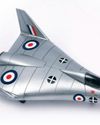
Mustard
BAC's Low Speed Research Vehicle
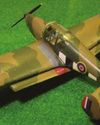
KOVOZAVODY PROSTEJOV (KP) 1 Was Monty's Triple'
Brian Derbyshire
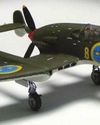
SPECIAL HOBBY SAAB J-21A Review
From the late 1930s and early 1940s, with thewar in Europe raging around them andedging ever closer to its borders, the Flygvapnet had ordered Seversky P-35A aircraft, alongside Vultee Vanguards, but only sixty of the former and none of the latter were received.
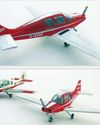
VFR MODELS Beagle B.121 Pup
This is the first 3D printed kit I have come across and it is really rather fine.
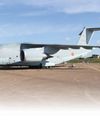
Hearts in the sky RIAT RETURNS
After a nearly three-year hiatus RIAT returned to our skies with a hot show in every sense of the word. SAM’s Mike Verier and Ray Ball were there.
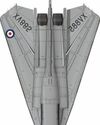
Colour Conundrum
A Cancellation Conundrum - The RAF F-111s That Might Have Been Part 1

COPPER CAUDRON Caudron G.Ill in 1/32
Copper State Models have carved a name for themselves in the last few years producing high quality plastic kits of World War One subjects.
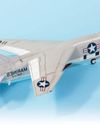
Academy RF-8A Crusader Conversion in 1/72
USMC squadron VMCJ-2 used six RF-8As during the Crisis (designation F8U-1P until September 1962), with others held in reserve, two flying out of Guantanamo Bay, and four out of NAS Key West.
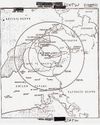
The Cuban Missile Crisis
Modelling US reconnaissance assets in 1/72 Part 2: The Nuclear Confrontation
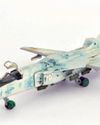
UKRAINIAT striker
The Sukhoi Su-24 is an all-weather attack aircraft capable of supersonic speeds and characterised by its side-by-side pilot/navigator seating and its variable geometry wing.